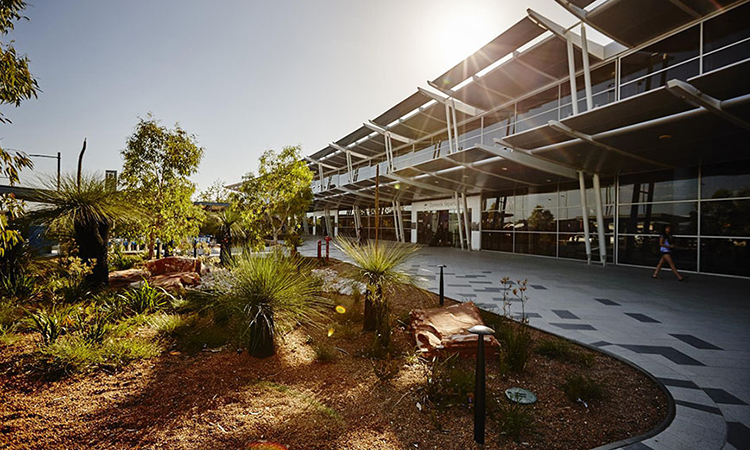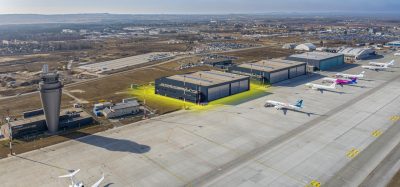Perth Airport commits to new Environment, Social, People and Governance Strategy
- Like
- Digg
- Del
- Tumblr
- VKontakte
- Buffer
- Love This
- Odnoklassniki
- Meneame
- Blogger
- Amazon
- Yahoo Mail
- Gmail
- AOL
- Newsvine
- HackerNews
- Evernote
- MySpace
- Mail.ru
- Viadeo
- Line
- Comments
- Yummly
- SMS
- Viber
- Telegram
- Subscribe
- Skype
- Facebook Messenger
- Kakao
- LiveJournal
- Yammer
- Edgar
- Fintel
- Mix
- Instapaper
- Copy Link
Posted: 16 June 2021 | International Airport Review | No comments yet
Perth Airport’s new ESPG Strategy will see the airport deliver upon a wide range of sustainability commitments, as well as reconfirm its commitment to safety and diversity.


Credit: Perth Airport
Perth Airport (PER) has announced that a rapid expansion in its use of renewable energy will drive its new commitment to be carbon neutral by 2030.
The carbon neutral commitment – which covers the airport’s Scope 1 and 2 emissions – is part of a new Environment, Social, People and Governance (ESPG) Strategy that sets ambitious sustainability targets for the Perth Airport team.
Perth Airport’s CEO, Kevin Brown, said that the ESPG strategy will build upon the airport’s reputation for doing the right thing by the community: “Perth Airport is focussed on delivering economic, social and cultural benefits by keeping the people of Western Australia connected to the rest of the nation and the world. We understand that our impact as an organisation goes way beyond the boundaries of the airport estate.”
This is not a new concept to Perth Airport. In recent years, Perth Airport has performed strongly in the internationally recognised GRESB accreditation process, which benchmarks the Environmental, Social and Governance performance of infrastructure assets.
“We will continue to build on this foundation and move forward by challenging our team to drive further improvements in all areas of our operations,” Brown continued. “We have emphasised the People element within ESPG to encompass not only our own team, but to recognise that we serve the people of Western Australia and look to meet their expectations on responsibly and sustainably managing our operations. As a diverse team, we reflect the aspirations and needs of the community that we serve.”
Brown also explained that Perth Airport is committed to managing and reducing its environmental impact across its 2,100 hectare estate and beyond: “Climate change is a global challenge which requires us all to act. We continue to manage our own carbon emissions through the Airport Carbon Accreditation process run by Airports Council International. We all need to be a part of the solution, and we are already laying the groundwork that will set us on the path toward our own operations becoming carbon neutral by 2030. We believe that we can achieve 50 per cent renewable energy across our estate by 2030, involving our tenants and operators.”
Additionally, Perth Airport has adopted a ‘no net loss of biodiversity’ commitment for its aviation and development projects and has recommitted to its efforts to preserve the Munday Swamp wetland and indigenous heritage area.
“We will embed sustainability considerations into the design and delivery of all infrastructure projects at Perth Airport by setting minimum requirements in key areas of sustainability. We will deliver major reductions in waste, with a cut of 20 per cent in waste to landfill and an increase in recycling of 75 per cent, and will ensure that our scheme water use remains below 2019 levels by 2030,” Brown explained.
Furthermore, Brown outlined that the ESPG targets also reconfirm the airport’s commitment to safety and diversity: “The safety of our team members, airline partners, tenants, retailers and everyone who passes through our terminals and broader estate will always be our top priority. We continue to aspire to zero injuries, setting standards for safety and driving down lost time injury rates.”
“The Perth Airport team has members from all parts of the world who have chosen Perth as their home. We celebrate this diversity and are committed to ensuring our team reflects the broader community. We will be working toward introducing a hidden disabilities programme for our terminals and other services for people of different abilities,” Brown said.
He continued: “We have already had success in supporting majority Aboriginal-owned businesses. Through adoption of special measures in our new Aboriginal and Torres Strait Islander Procurement Policy, we will increase the number and value of procurement contracts awarded, and influence workforce participation for First Nations People within our supply chain more broadly. We have also joined the global push to end Modern Slavery and will continue to review all of our new contracts and suppliers in light of this commitment.”
Related topics
Airport Carbon Accreditation (ACA), Airside operations, Emissions, Passenger experience and seamless travel, Safety, Sustainability, Sustainable development, Terminal operations, Workforce


















